article_detail
Spanish News Today Editors Roundup Weekly Bulletin Sept 3
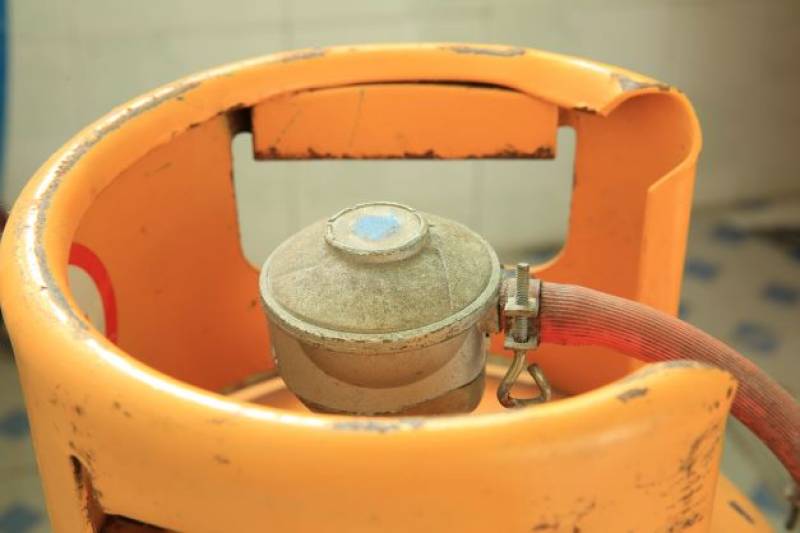
CLICK HERE FOR THE FEATURE ARTICLES "Price freeze on butane gas canisters at just under 20 euros this winter" and "Supermarkets in Spain announce new autumn opening hours"
Autumn in Spain doesn’t actually start until September 22, in about three weeks’ time, but the first of this month is actually the start of meteorological autumn. And rainstorms, deadly hailstones 10cm in size and a sharp drop in temperatures can attest to the kind of extreme weather that awaits us after what has been the hottest summer in living memory. Indeed, there is even a 70% chance that a cyclone brewing in the Atlantic could turn into Hurricane Danielle, which might hit the coast of Spain by the middle of next week!
With the change in season also come renewed fears for how we’re all going to stay warm this winter, what with out-of-control gas and electricity prices, leading the Spanish government to promise a much-welcomed price freeze on butane canisters. And September also means that Mercadona supermarkets across the country are changing their opening times once again.
All this and more within…
Price of life
It’s hard to believe that the summer is over (climatologically speaking at least!) and that we’re now facing the colder months of the winter. While this means a final respite for the heat, for many it’s a worrying time as prices continue to soar. To mitigate the ever-increasing energy costs, the Spanish government announced some very welcome news this week: VAT on gas will drop from 21% to 5% between October and December, a measure which may be extended into the new year.
According to President Sánchez, the reduction is for “the benefit of the working middle class” and the savings by taxpayers will be made up by higher taxes on the profits of banks and electricity companies.
So, between the so-called ‘Iberian exception’, which set a price cap on gas and the new lower VAT, how much will we actually save?
Since September 2020, the price of butane gas cylinders, commonly known as ‘bombonas’ and used to power millions of Spanish homes each winter, has increased by 6% every two months. From next month, the maximum limit for the sale price of these gas canisters is set at 19.55 euros until the end of 2022.
Even with the savings, this is still more than 4 euros above what people were paying for bottled gas this time last year.
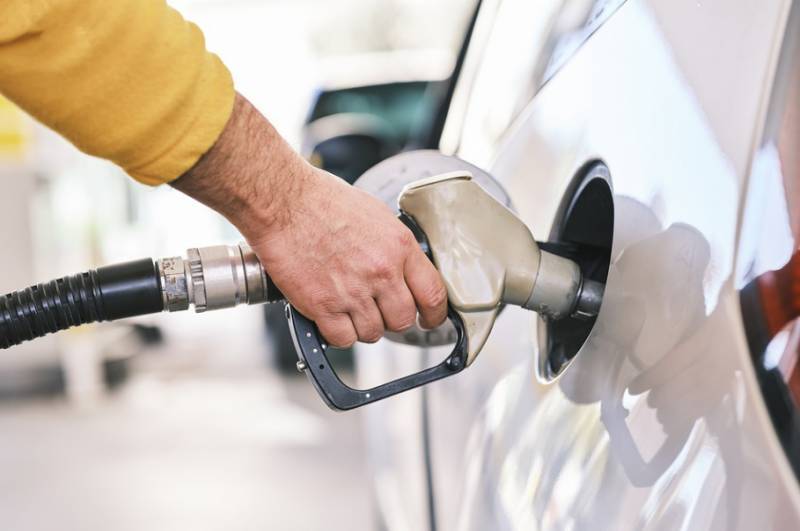 The price of diesel and petrol has also risen for the first time since the beginning of the summer, and it now costs around 88 euros to fill a standard 55-litre petrol tank. The government already introduced a rebate of 20 cents on each litre of fuel consumers buy at the tanks, and in response to the recent rebound are considering not only extending the measure beyond the end of this year, but actually increasing it by between 5 and 10 cents per litre up to a total of 25 or 30 cents, a move which has already been made this week by the French authorities.
The price of diesel and petrol has also risen for the first time since the beginning of the summer, and it now costs around 88 euros to fill a standard 55-litre petrol tank. The government already introduced a rebate of 20 cents on each litre of fuel consumers buy at the tanks, and in response to the recent rebound are considering not only extending the measure beyond the end of this year, but actually increasing it by between 5 and 10 cents per litre up to a total of 25 or 30 cents, a move which has already been made this week by the French authorities.There could be some more good news on the horizon for our bank balances as the experts believe Spain may be slowly emerging from the worst inflationary crisis to hit Europe in 40 years.
The cost of many high-demand consumer products is already coming down, and drivers have probably noticed the earliest signs of recovery, since petrol and diesel prices have dropped by 11% and 8%, respectively, in comparison with July.
With other items following suit, it’s not beyond the realms of possibility that the CPI, which has reached a staggering 10.8%, could fall to around 8% in the coming weeks.
“If we’re not at the top [of the peak], I think we’re already seeing the end of the climb,” one economics professor summed up.
While decreasing prices can only be a good thing for cash-strapped consumers, there is a dangerous flip side: recession. Many experts feel that the drop in prices of raw materials like fuel and grains points to the fact that global demand is slowing down, which itself could indicate an imminent collapse of the world economy.
The World Trade Organisation has already conceded that world trade has slowed down in the second quarter and more and more analysts are predicting that the Eurozone could enter a recession in the second half of the year.
Eight dead bodies floating in the Mediterranean
The topic of illegal crossings of migrants from Africa to Spain and southern Europe has once again come to the fore after eight dead bodies were found over the span of a few days this week, all of them floating in the waters of the Mediterranean Sea off the coast of Alicante and Murcia.
Among the corpses, each of was which was spotted by various boats and jet skis enjoy their day out on the water, were at least two small children. In most cases, police could only wait for the tide to bring the bodies to shore in La Manga, Pilar de la Horadada and Torrevieja before they transferred them to the morgue for autopsy.
But how did they get there?
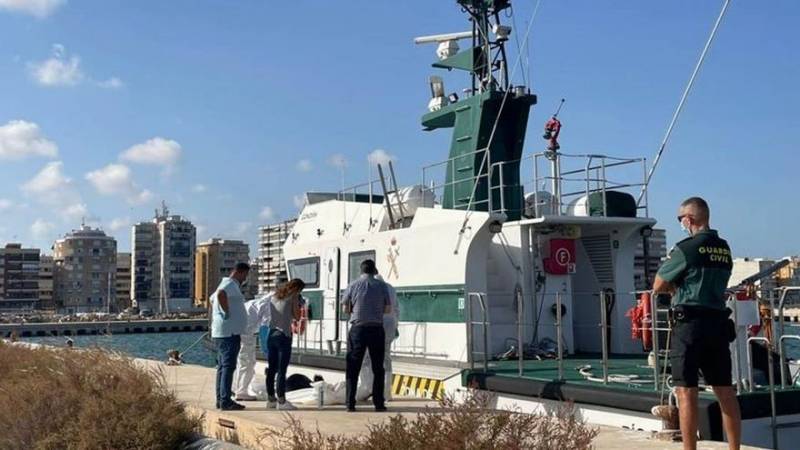
Nothing has been confirmed yet, but the current prevailing theory is that they are the bodies of a group of migrants who attempted to make the crossing in a small boat which subsequently tipped over.
This has been supported by the testimony of a lone man who was rescued from a drifting boat last Saturday, in a state of dehydration, conscious and suffering from sunburn, who claimed to be the captain of the patera small boat which had departed from Algiers last August 1.
The man, just 21-years-old and possibly Moroccan, said that his boat left the African port at the beginning of last month carrying 16 people but that a strong wave that hit the boat on August 21 swept everyone overboard except him.
If the man’s story is true – and what reason would he have to lie, if his story incriminates him for the crime of people smuggling and possible manslaughter anyway? – then the recovery of eight bodies so far still leaves a further eight which are still missing.
Each year, thousands of families from across Africa travel to the north of the continent in a bid to try and reach Europe for a better life, but this journey is fraught with danger and costs many of them their life savings – and in some cases their lives.
Tragically, sources from the Security Forces and Corps have confirmed that barely 10% of the bodies of people who die at sea in shipwrecks are recovered. Those that are recovered are rarely identified, nobody claims them and their mortal remains are not returned to their families to receive closure.
It is thought that between 2014 and 2019, around 19,000 people have gone missing in the Mediterranean Sea trying to make the crossing on the migration route, and a further 3,300 in 2021.
While the Red Cross does its best, via its Restoring Family Links service, to set up face-to-face meetings with the relatives of missing migrants to pass on the information and help them find out what has happened to their loved ones, it is just a drop in the ocean and cold comfort for those who are so desperate they feel the need to attempt such a dangerous and costly crossing.
If we in the Northern Hemisphere are to take seriously our proclaimed values of the human right to life and dignity, we need to not only facilitate a procedure for the safe interception of migrants on this sea crossing so that they are not made to resort to climbing in rickety dinghies with inexperienced drivers.
But more than this, the problem would be better tackled at its root by undertaking international and omnilateral efforts to substantially improve the quality of life in developing countries – and not just pay lip service to a commitment to foreign aid – to eliminate the need for people to risk their lives in this way in the first place.
Oil spill spells environmental disaster
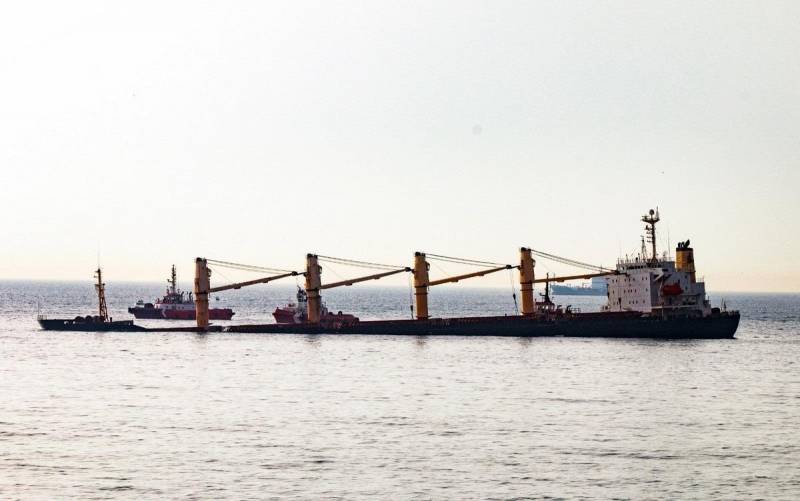
The bulk carrier OS 35 collided with liquified natural gas tanker ADAM LNG this Monday just outside the Port of Gibraltar, causing the former to be semi-sunken in the water with a 10-metre gash below the waterline on its starboard side.
The OS 35 was leaving Gibraltar to head to Vlissengen in the Netherlands carrying 183 tonnes of heavy fuel oil, 250 tonnes of diesel and 27 tonnes of lube oil, some of which is now leaking out into the waters of the Bay of Algeciras on Spain’s south coast.
Despite efforts from the Gibraltar Port Authority and the Gibraltar Government to erect a containment boom and create a perimeter around the disaster zone, oil is escaping through the barrier and into the sea.
A second sea boom is being deployed and a coalition of teams from both the Gibraltar side and the Spanish side are clearing the spill on the surface of the water, while divers are resealing to two vents in the ship's fuel tanks which became loose following the crash.
“Approx 4,000 litres of a mix of oil and water have already been recovered from inside the boom that is alongside the vessel. The clean-up work continues,” confirmed HM Govt Gibraltar.
The crew on board the OS 35 were unhurt, but the captain of the OS 35 has since been taken into custody by Royal Gibraltar Police for failing to turn around and come back into port after the crash, instead insisting that everything was fine and that they would be heading out to sea as planned.
This still doesn’t explain how the crash could come to have pass in the first place, and what possible lack of security controls led to the accident. Regardless of who is responsible, this is an environmental calamity that threatens species like whales and dolphins that pass through the stretch of water between Spain and Morocco. What’s needed are much more stringent security measures to ensure that something like this is never allowed to happen again.
Murcia
Murcia is preparing for the approach of the autumn and winter seasons ahead of time, most prominently with the announcement of the new flight schedule at Corvera International Airport.
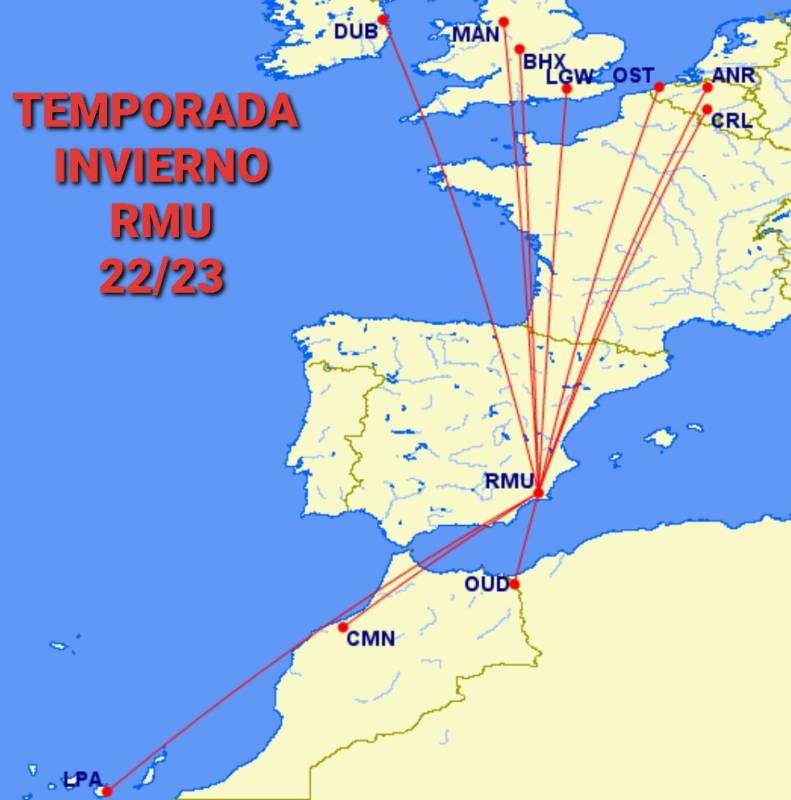 From November, Murcia will lose 10 of its summer flight routes and keep just 12. This is actually two more than last winter, with the addition of Dublin in Ireland and Ostend, Belgium. However, the announcement still has people fuming, with the familiar complaints about the uselessness of the new airport in comparison with the late, beloved San Javier Airport.
From November, Murcia will lose 10 of its summer flight routes and keep just 12. This is actually two more than last winter, with the addition of Dublin in Ireland and Ostend, Belgium. However, the announcement still has people fuming, with the familiar complaints about the uselessness of the new airport in comparison with the late, beloved San Javier Airport.For example, there is only one flight to a domestic Spanish destination – Las Palmas de Gran Canaria – and the airport loses its flights to Menorca, Mallorca and all its Norwegian connections. Good news is, that there are “hopes” to add new daily routes to Madrid and Barcelona next summer. No news on Newcastle or the Netherlands or any of the other myriad air connections people have called for though.
The other thing that the arrival of September frequently signals is the return of the rains, and towns across the Murcia Region have been bringing forward the cleaning of waterways, drains and canals to try and prevent flooding.
Each year, the dreaded Gota Fría storms cause floods in many parts of Murcia, and the authorities are determined not to be caught out this autumn. Ramblas, imbornales and other rainwater networks need to be regularly cleared of undergrowth and any weeds that could obstruct drainage and cause flooding, and this year, judging by the extreme and unpredictable weather we have seen so far, it may just pay to be overcautious, as no one would be surprised if 2022 brought the worst rainfall and flooding in a century, as well as the most wildfires and the highest temperatures.
While grape harvests in Spain have been diminished by these weather conditions this year, it won’t put wine enthusiasts off joining the ever-popular ‘Bus del Vino’, the Wine Bus trips to the wine-producing towns of Jumilla, Yecla and Bullas in northern Murcia, which return as of this month.
The first of the Wine Bus trips will take place on September 17, and then every two weeks after that, and anyone who has ever been on one can highly recommend it. You can learn more about how wine is made in Murcia, have a slap-up lunch at one of the quality local restaurants and, of course, take part in plentiful wine-tasting sessions. Be sure to book in advance because they fill up fast!
Check out our EVENTS DIARY to see everything that’s going on in Murcia in the next few weeks:
Spain
As August closes, many stores will soon be reverting to their shorter winter opening hours and Mercadona is the first supermarket chain to pull the trigger.
Shopping at the popular supermarket became a whole lot more flexible this summer, with the Valencian company closing later and even opening until 3pm on Sundays in many of the more touristy areas with greater footfall.
This all came to an end on September 1, however, and Sunday browsing is a thing of the past, since Mercadonas across Spain will now only open between Monday and Saturday, from 9am until 9.30pm.

The supermarket giant normally closes on holidays too but this can vary region to region, so it’s best to check with your local store to be on the safe side.
More big changes coming this month affect drivers, and brand-new number plates are being brought into circulation beginning with the letter ‘M’ since the latest combination of ‘LZX’ has been exhausted.
Spain only altered its licence plates to match the European model in September of 2000; before this, you could easily tell where a vehicle was manufactured due to a letter denoting the city i.e. ‘M’ for Madrid or ‘B’ for Barcelona. Nationalists argued against the change but most dealers were all for it, claiming it’s now easier to sell cars between regions since it’s not immediately evident where they were built.
These days, the vast majority of Spanish licence plates consist of four digits, three consonant letters and the EU flag on the left, but it seems not all letters are created equal, at least not in the eyes of the DGT. The number and letter combo on licence plates allows only consonants and doesn’t use any vowels, to avoid any offensive or rude combinations in Spanish like ‘PIS’ or ‘ANO’ (look them up if you don’t know what they mean), and ones that would personalise a car with proper names, such as ‘EVA’ 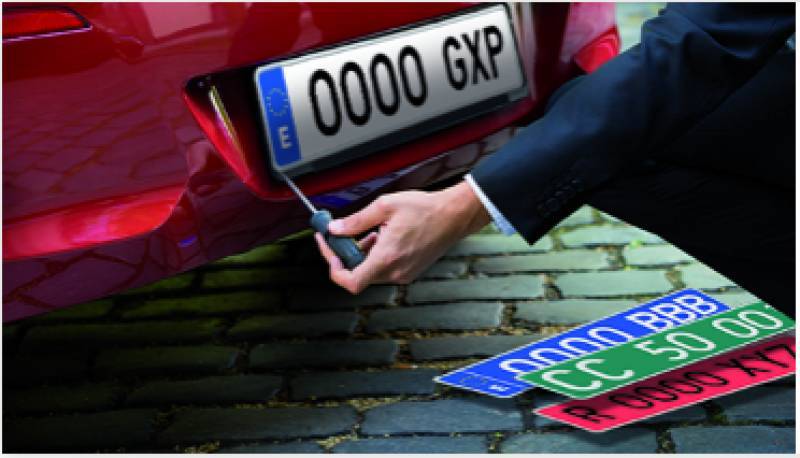 or ‘ANA’. Vowels aren’t the only anomaly though: the letters ‘Ñ’ and ‘Q’ are avoided as they could be confused with ‘N’ and ‘O’, nor are ‘LL’ or ‘CH’ used.
or ‘ANA’. Vowels aren’t the only anomaly though: the letters ‘Ñ’ and ‘Q’ are avoided as they could be confused with ‘N’ and ‘O’, nor are ‘LL’ or ‘CH’ used.
 or ‘ANA’. Vowels aren’t the only anomaly though: the letters ‘Ñ’ and ‘Q’ are avoided as they could be confused with ‘N’ and ‘O’, nor are ‘LL’ or ‘CH’ used.
or ‘ANA’. Vowels aren’t the only anomaly though: the letters ‘Ñ’ and ‘Q’ are avoided as they could be confused with ‘N’ and ‘O’, nor are ‘LL’ or ‘CH’ used.It’s also pretty easy to tell the age of a car from its licence plate, since each letter denotes a two-year time period. For example, a licence plate beginning with ‘B’ indicates an older car, originally registered between September 2000 and October 2002. On the other hand, if the plate starts with an ‘L’ that means the vehicle was produced between September 2019 and September 2022.
Finally, Ryanair has announced another travel boost. Unfortunately, it’s not lower prices, and Michael O’Leary has actually confirmed that “the era of really cheap and cheerful airfares” is gone for a couple of years. However, the airline has launched 21 new routes from UK airports this winter to destinations like Spain, Italy and France and has promised that the 3,000 daily flights in operation will still offer “unbeatable value” to consumers.
The new schedule includes flights to Lanzarote, Barcelona, Santander and Asturias.
Alicante
More flights overseas look set to be launched in the near future with Norwegian Airlines expanding its scope at Alicante-Elche airport. Whilst many sectors and businesses are still reeling from the Covid pandemic and energy crisis, things are on the up for the low-cost airline, which has revealed plans to re-establish the company’s former presence at its base in Alicante from 2023, with more aircraft and routes to and from the province.
During the global Covid pandemic, Norwegian was forced to lay-off thousands of employees and close three of its five Spanish bases, with the exception of Malaga and Alicante. However, by the end of last year, the airline looked like it was taking off once again, reporting an operating profit of 129.5 million euros in the second quarter of 2022. Currently, the airline has two aircraft based in Alicante, and by next year there will be three, one fewer than before the pandemic.
Meanwhile, at ground level, motorists across Spain celebrated the scrapping of the last stretch of toll road between Alicante and Tarragona at the beginning of 2020 after 48 years. And whilst several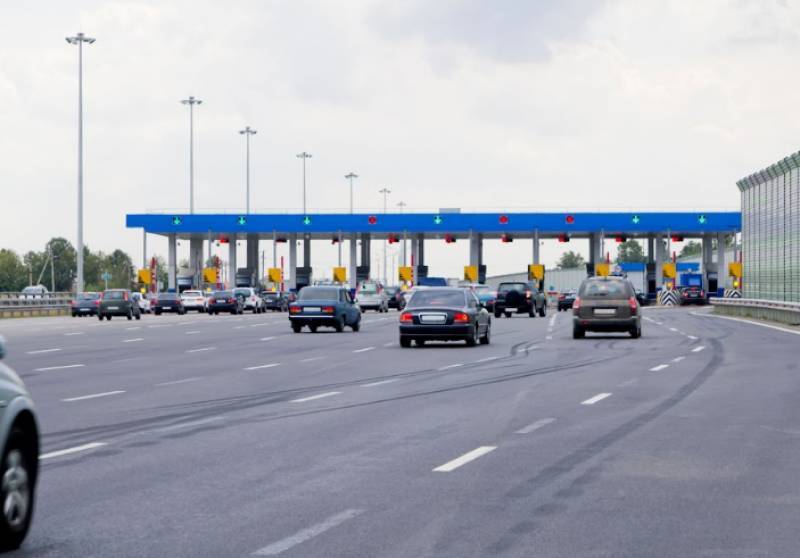 authorities raised concerns that cash for the maintenance and upkeep of the road would now have to come out of the annual budget rather than employing the “polluter pays” principle adopted by the EU, motorway users rejoiced. However, this would be short-lived and the Ministry of Transport has since back-pedalled and the decision to do away with the pay tolls on Alicante roads looks set to be reversed.
authorities raised concerns that cash for the maintenance and upkeep of the road would now have to come out of the annual budget rather than employing the “polluter pays” principle adopted by the EU, motorway users rejoiced. However, this would be short-lived and the Ministry of Transport has since back-pedalled and the decision to do away with the pay tolls on Alicante roads looks set to be reversed.
 authorities raised concerns that cash for the maintenance and upkeep of the road would now have to come out of the annual budget rather than employing the “polluter pays” principle adopted by the EU, motorway users rejoiced. However, this would be short-lived and the Ministry of Transport has since back-pedalled and the decision to do away with the pay tolls on Alicante roads looks set to be reversed.
authorities raised concerns that cash for the maintenance and upkeep of the road would now have to come out of the annual budget rather than employing the “polluter pays” principle adopted by the EU, motorway users rejoiced. However, this would be short-lived and the Ministry of Transport has since back-pedalled and the decision to do away with the pay tolls on Alicante roads looks set to be reversed.The Ministry has hired a consulting firm to help develop a plan to implement the “payment for use of Spanish high-capacity roads”, despite the fact that the government recently promised that tolls for dual carriageways and highways wouldn’t be considered in the current financial climate. Spain is committed to introducing tolls in order to receive its Next Generation Funds from the European Union, and has 16 months to comply with the EU and introduce tolls on highways and dual carriageways.
Barely a week goes by without reporting a drowning or near-drowning in Alicante province and tragedy has once again hit the coastline with the death of a British man, 74, who died after suffering a suspected heart attack and falling unconscious whilst swimming at L’Ampolla beach in Moraira.
Lifeguards raced to help the pensioner and brought him onto the sand to try to revive him before paramedics took over and continued CPR, but despite their efforts, they were unable to save the elderly bather and he was pronounced dead on the beach. It’s not clear whether the man was on holiday or lives in the area.
Just days later, catastrophe struck with the death of a 61-year-old Spanish man who drowned during a trip to Alicante’s Tabarca Island. According to data from the Spanish Lifeguard Federation, the Valencia region remains at the top of the table of deaths by drowning so far this year with 41 cases, a position it 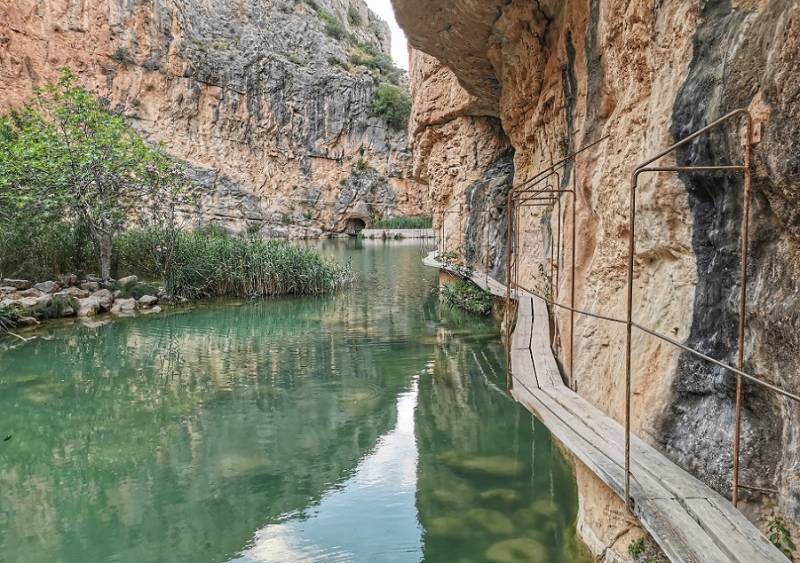 has held since 2019.
has held since 2019.
 has held since 2019.
has held since 2019.In spite of the high rate of deaths in the water, the Costa Blanca coastline is widely celebrated for its wild-swimming spots. The region is home to an array of authentic water paradises from shimmering natural pools to glistening waterfalls, perfect for a refreshing dip off the beaten track.
In other news, expats in Alicante province are once again being offered the chance to learn Spanish online with the launch of a new programme of free courses for 2022 organised by Alicante Provincial Council’s International Residents’ Unit, and with the ever-increasing demand for these free courses, the number of places available has been upped to 400. Over the last few years, more than 8,000 international residents have benefited from these programmes, enrolling in a total of 209 courses.
And on a tragic note, the distressing and heartbreaking death of the dog left tied up on a Torrevieja rooftop in the sun for three days without water has sparked outrage amongst residents, who plan to take to the streets on September 11 to highlight the appalling neglect in a bid to stop it happening again.
Andalucía
As the tourist season winds down in Andalucía and the southern Costas, it is a time to reassess where the region stands and begin looking to improve on the tourism sector for next summer – though of course, there’s no end of conflicting opinions on how to do that.
Possibly most controversial of all is the tourist tax, which, along with the cities of Seville and Malaga, has now gained the support of the Mayor of Granada. All these places want to follow the example of Barcelona and the Balearic Islands introduce a surcharge of between 50 cents and 2 euros per night for tourists to stay in hotels, hostels and other tourist accommodation like Airbnbs.
These tourist taxes are generally not very popular among travellers, for obvious reasons, and some claim it will put holidaymakers off visiting, but there is a reason that more and more cities around the world are implementing it. In Granada, explained the mayor, a tourist tax could contribute to the development of the tourism sector and the economy, because they could afford to promote the city “in Korea or Japan”, as well as pay for the “maintenance” and “signage” of the city.
He also insisted that it’s unlikely any traveller would stop visiting the city just because they have to pay a small surcharge on accommodation, and in honesty, with the vast fluctuation in hotel prices on Booking.com from day to day and week to week anyway, an extra euro on top will hardly make any difference for most people.
In one picturesque Almeria town, located in the heart of the Cabo de Gata-Níjar natural park, they are tackling a different kind of tourist problem. Residents from Las Negras in Níjar are railing against what they call “drunken tourism”, involving an influx of “bachelor parties, uncontrolled parties” and an ‘anything-goes’ attitude which are causing problems of public disorder and noise pollution.
An idyllic seaside town, Las Negras have said they don’t want to be associated with that kind of lawless image – more commonly linked to party Spanish capitals like Ibiza and Magaluf – and that they “want to listen to the waves” on the beach and not club music, and to that end have proposed a series of harsh fines for bars and clubs that stay open late.
Meanwhile, Seville airport has opened a new non-Schengen international departures hall in its airport this week, after the completion of the renovation work on the north terminal, with the first passengers passing through the hall for their Vueling flight to London on Tuesday.
This new departures hall for travellers to non-EU countries, part of the 80-million-euro terminal refurbishment, is expected to boost Seville’s tourism sector with respect to foreign holidaymakers, and will be much welcomed by potential flyers from the Andalusian capital.
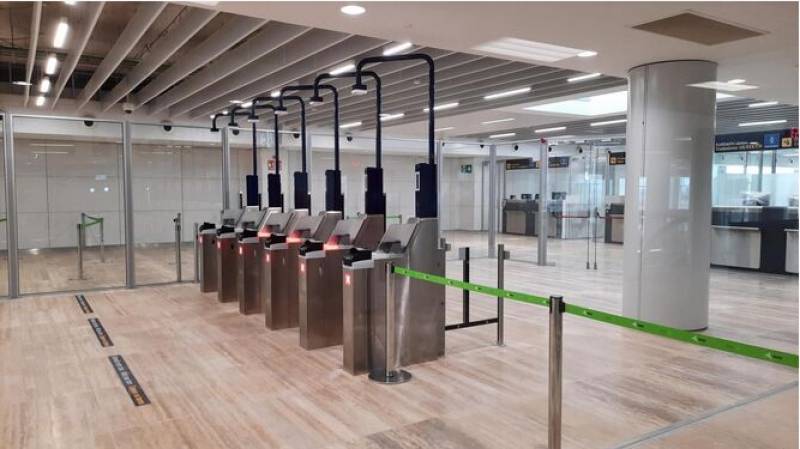
You may have missed…
- Baby killed by blow from hailstones in Spain.
A violent hail storm that battered Catalonia this week has resulted in the death of a 20-month-old baby, who was hit in the head by a hailstone measuring more than 10cm in diameter. - Murcia truck driver arrested for running over and killing 6 people at Dutch BBQ.
A Murcia lorry driver has been arrested by Rotterdam Police after he careered into a community barbecue in the Netherlands, killing six people. - British tourist scatters ashes of Yorkshire Ripper in Lanzarote.
A long-time friend of the Yorkshire Ripper has flown to the Canary Island of Lanzarote this week to scatter the serial killer’s ashes off the Atlantic coast, fulfilling his dying wish. - Spanish minimum wage to be increased more than expected?
The Spanish government already promised to up the Spanish minimum wage for 2023, and this may now turn out to be more than workers initially expected. - Mother and 2 kids in near tragedy when car almost plunges into Mar Menor.
San Javier Local Police rescued a mother and her two children after the car they were travelling in was involved in an accident near Playa Chica, almost plunging into the Mar Menor.
That’s all from us for this week. Don’t forget that if you haven’t already, you can renew your subscription to the bulletin for the 2022/23 season by clicking here: https://murciatoday.com/weekly_bulletin.html We’ll also be sending round emails to all our current subscribers when their renewal period is coming up, so be sure to check your email inbox and Junk mail folder, just in case.
See you next week!
Got a business in Spain? Advertise with us.
Murciatoday.com and its affiliated Spain Today Online sites can help bring your business to a wider audience – over 350,000 unique readers every month. We’ll provide you with custom-made banner ads, a personalised listing in our Business Directory and special feature articles about your particular business niche.
Don’t limit yourself to the yellow pages. Get online! After Covid, can you afford not to? Contact us today to find out how we can get wider exposure for your business.
Contact Spanish News Today: Editorial 966 260 896 /
Office 968 018 268

















